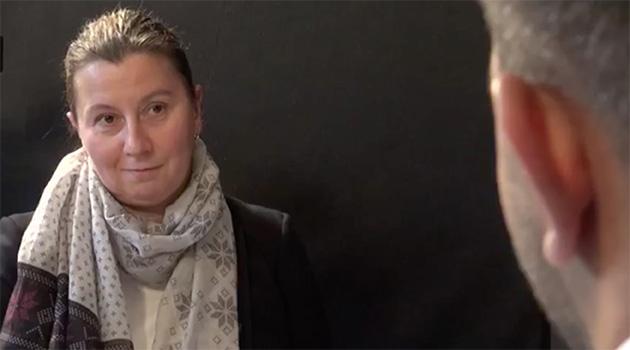Czech Radio reported today that Czech Human Rights Commissioner Martina Štěpánková is resigning from her post at the end of March and from her other position as Deputy Minister administering the Human Rights Section at the Office of the Government. She has confirmed that information to the Czech News Agency.
Štěpánková said it was her decision to step down. Czech Prime Minister Andrej Babiš (ANO) told Czech Radio that a selection procedure will be announced for the post and that the first round of selection will be internal.
The Human Rights Commissioner position was revived last year by the second Babiš Government. Štěpánková, a lawyer, was appointed in June.
During the previous administration, the Government of Bohuslav Sobotka (Czech Social Democratic Party – ČSSD) had appointed a Human Rights Minister. During the first years of the Sobotka administration that cabinet-level post was held by Jiří Dienstbier (ČSSD), who chose Štěpánková as his deputy.
After Jan Chvojka (ČSSD) replaced Dienstbier as minister, Štěpánková remained the deputy, including after the Babiš Government cancelled the cabinet-level post. Prior to joining the Office of the Government, Štěpánková worked for the Counselling Center for Civil and Human Rights, an NGO.
The Human Rights Commissioner’s agenda involves human rights, the issue of the Romani minority and other national minorities, nonprofit organizations, equal opportunities, and the rights of people living with disabilities. The Czech Government Agency for Social Inclusion is also part of that agenda.
The Commissioner is also the Vice-Chair of the relevant Government advisory bodies chaired by the PM. Some of those advisory bodies have recently garnered criticism due to their lack of activity.
Czech Radio quoted the Czech Public Defender of Rights, Anna Šabatová, in that regard. Šabatová noted that the Czech Government Human Rights Council, of which she is an official member, has not convened for a year and a half.
The PM told Czech Radio that he is still the chair there and that it will convene on 12 March. The first round of the selection proceeding for the position of Deputy Minister for Human Rights was announced by the State Secretary of the Office of the Government on 18 February.
Applications can be submitted until the end of the month. The candidate must have completed a Master’s degree, hold Czech citizenship or citizenship of an EU country, speak English, and have gained a security clearance for working with classified information.
Academics or persons who have worked for several years in either Czech or European authorities and institutions are able to apply. The United Nations delivered recommendations to the Czech Republic in November 2017 about its human rights record as part of its Universal Periodic Review process (UPR).
The recommendations were to improve the integration of Romani people into society, combating Islamophobia, racism and xenophobia, and continuing the country’s efforts to achieve equality between men and women. The UPR also called on the Czech Government to compensate the victims of forced sterilization.
Some UN countries also expressed appreciation for the progress the country has made recently on integrating children with “disadvantages” into education, as well as the agreement to buy out the pig farm at Lety u Písku on the site of the former concentration camp for Romani people so as to create a dignified memorial there. Most previous Governments in the Czech Republic since 1993 have had a Human Rights Commissioner.
The position was first established in 1998. Prior to Štěpánková it had been held by five men and one other woman.

